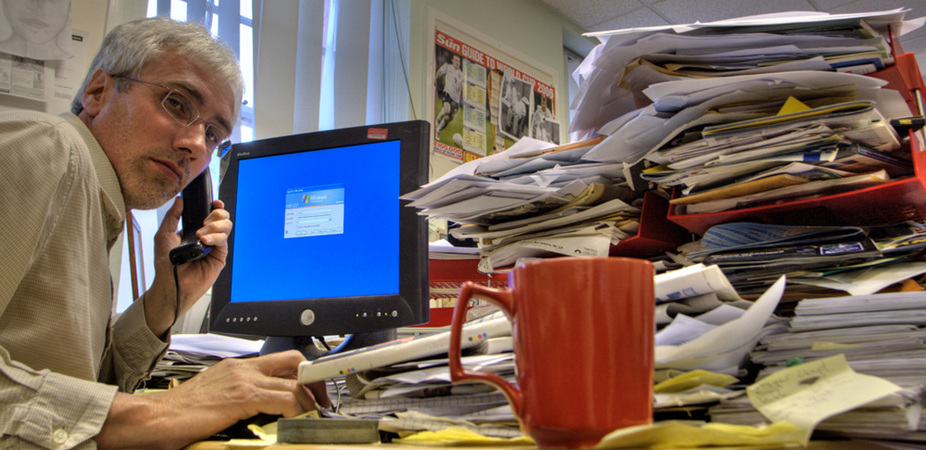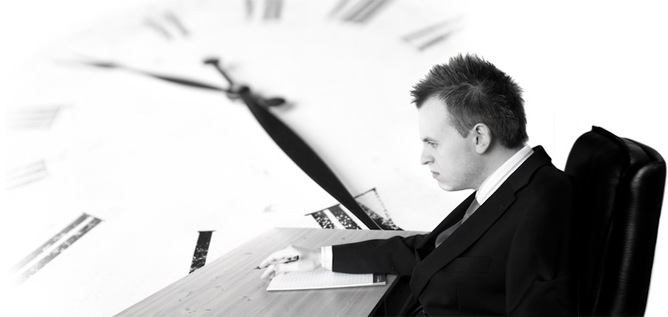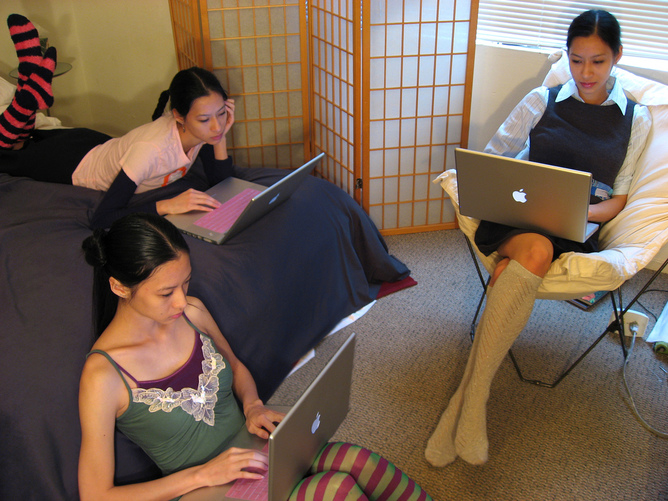
Clock Off, Switch Off: Tips to Stress Less Outside Work Hours

This article was originally published at The Conversation. The publication contributed the article to LiveScience's Expert Voices: Op-Ed & Insights.
Australians are busy at work. We report very high levels of intensive working compared to other industrialised countries.
And while it’s difficult to fully disconnect from work as we head home for the day, a paper published today in the journal PLOS ONE provides some insight into how our personal thinking styles and values can affect how well we manage the stress of work interruptions, and think about work during leisure time.
Most of us work with other people – colleagues, supervisors, clients, customers – and this means that we are often interrupted when doing our work. Email, for example, is a major cause of work interruptions.
With high pressure and demanding work becoming the typical daily experience of many workers, there is a clear need for research on how individuals can survive and thrive in such demanding work environments.
Today’s PLOS ONE study suggests that by training ourselves to change the way we view and respond to work interruptions, we may be able to reduce our levels of stress and fatigue both at work and in our personal or leisure time.
The study says …
The study involved 300 white-collar full-time employees from the private business sector, including managers, executives and other professionals. They found complex relationships among a range of beliefs, values and styles of thinking about work.
Sign up for the Live Science daily newsletter now
Get the world’s most fascinating discoveries delivered straight to your inbox.

Workers who prioritised efficient use of time while at work, and were able to view work interruptions as positive and constructive (such as providing a welcome break or reducing boredom), were less likely to spend their leisure time thinking about work-related problems, and were able to “switch off” from work.
Recognising and valuing the importance of leisure time also helped workers to “switch off” when not at work. This capacity to detach or “switch off” has been shown in other studies to be important for rest and recovery, which is crucial for sustaining health and well-being in the long-term.
So how do I stress less?
The researchers suggest a number of strategies that individuals and organisations could use to better support workers’ capacity to deal positively with work interruptions, and to improve rest and recovery after work.
Organisations could provide training in time and task management, including assertiveness training with regard to managing interruptions.
Organisations can also play a role in reducing work intensification and the spillover of work tasks and communication into leisure time. The authors of the study suggest that organisations establish periods of employee unavailability. Email communications could be limited to daytime hours (not evenings!) and weekdays.

Managerial and executive roles present more challenges with regard to managing the boundary between work and non-work time. One strategy worth trying is to set periods of time when particular individuals are unavailable and not expected to respond to work communications or engage in work tasks (such as rostered evenings and weekends of non-availability).
Finally, the authors recommend that individuals recognise the value of leisure and relaxation for their mental and physical health, and general well-being. They suggest individuals proactively organise some leisure activities that give them satisfaction and enjoyment, to ensure a good balance between work and non-work life activities.
In general, the research on rest and recovery reminds us that working life, and life in general, is a marathon, not a sprint.
We need to pace ourselves, and look after our health and well-being, to sustain our capacity to work well in jobs that are often demanding of our time and energy.
This means both building our skills in coping with work demands, but also recognising and valuing the quality of our family and leisure time away from work.
Natalie Skinner receives funding from the Australian Research Council, SafeWork SA and FairWork Australia.
This article was originally published at The Conversation. Read the original article. The views expressed are those of the author and do not necessarily reflect the views of the publisher. This version of the article was originally published on Live Science.
Science news this week: Possible signs of life on another planet and a 'useless' female organ
Universe may revolve once every 500 billion years — and that could solve a problem that threatened to break cosmology
Scientists hijacked the human eye to get it to see a brand-new color. It's called 'olo.'










